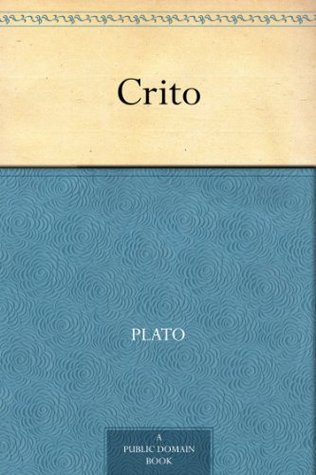More on this book
Community
Kindle Notes & Highlights
Socrates is afraid that Crito is but pressing upon him the opinions of the many; whereas, all his life long he has followed the dictates of reason only and the opinion of the one wise or skilled man.
And although someone will say ‘the many can kill us,’ that makes no difference; but a good life, in other words, a just and
honourable life, is alone to be valued. All considerations of loss of reputation or injury to his children should be dismissed: the only question is whether...
This highlight has been truncated due to consecutive passage length restrictions.
And whither will he direct his footsteps? In any well-ordered state the Laws will consider him as an enemy.
Not ‘the world,’ but the ‘one wise man,’ is still the paradox of Socrates in his last hours. He must be guided by reason, although her conclusions may be fatal to him. The remarkable sentiment that the wicked can do neither good nor evil is
true, if taken in the sense, which he means, of moral evil; in his own words, ‘they cannot make a man wise or foolish.’
But why, my dear Crito, should we care about the opinion of the many? Good men, and they are the only persons who are worth considering, will think of these things truly as they occurred.
But you see, Socrates, that the opinion of
the many must be regarded, for what is now happening shows that they can do the greatest evil to anyone who has lost their good opinion. SOCRATES: I only wish it were so, Crito; and that the many could do the greatest evil; for then they would also be able to do the greatest good—and what a fine thing this would be! But in reality they can do neither; for...
This highlight has been truncated due to consecutive passage length restrictions.
your zeal is invaluable, if a right one; but if wrong, the greater the zeal the greater the danger;
the opinions of some men are to be regarded, and of other men not to be regarded.
some opinions, and the opinions of some men only, are to be valued, and that other opinions, and the opinions of
other men, are not to be valued. I ask you whether I was right in maintaining this? CRITO: Certainly. SOCRATES: The good are to be regarded, and not the bad? CRITO:
Yes. SOCRATES: And the opinions of the wise are good, and the opinions o...
This highlight has been truncated due to consecutive passage length restrictions.
Is the pupil who devotes himself to the practice of gymnastics supposed to
attend to the praise and blame and opinion of every man, or of one man only—his physician or trainer, whoever he may be?
Of one man only. SOCRATES: And he ought to fear the censure and welcome the praise of that on...
This highlight has been truncated due to consecutive passage length restrictions.
And he ought to act and train, and eat and drink in the way which seems good to his single master who has understanding, rather than according to t...
This highlight has been truncated due to consecutive passage length restrictions.
And if he disobeys and disregards the opinion and approval of the one, and regards the opinion of the many who have no understanding, will he not suffer evil? CRITO: Certainly he will. SOCRATES: And what will the evil be, whither tending and what affecting, in the disobedient person?...
This highlight has been truncated due to consecutive passage length restrictions.
Very good; and is not this tru...
This highlight has been truncated due to consecutive passage length restrictions.
other things which we need not separately enumerate? In questions of just and unjust, fair and foul, good and evil, which are the subjects of our present consultation, ought we to follow the opinion of the many and to fea...
This highlight has been truncated due to consecutive passage length restrictions.
ought we not to fear and reverence him more than all the rest of the world: and if we desert him shall we not destroy and injure that principle in us which may be assumed to be impro...
This highlight has been truncated due to consecutive passage length restrictions.
instance:—if, acting under the advice of those who have no understanding, we destroy that which is improved by health and is deteriorated by disease, would life be worth having? And that which has been destroyed is—the body? CRITO: Yes. SOCRATES: Could we live, having an evil and corrupted body? CRITO: Certainly not.
And will life be worth having, if that higher part of man be destroyed, which is improved by justice and depraved by injustice? Do we suppose that principle, whatever it may be in man, which has to do with justice and injustice, to be inferior to the body?
Then, my friend, we must not regard what the many say of us; but what he, the one man who has
understanding of just and unjust, will say, and what the truth will say.


